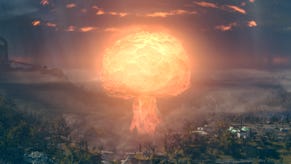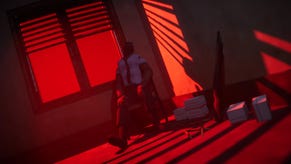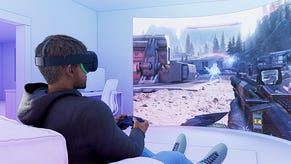Emotions, meaning and an AI Kubrick: David Cage's vision of the future
Quantic Dream's head on his quest for cinematic games.
David Cage used his GDC Europe session earlier today to assess and explain Quantic Dream's approach to cinematic games, and to look towards a future where photorealism becomes closer and where algorithms could replicate the directing styles of auteurs such as Stanley Kubrick and Orson Welles.
Cage, whose studio is on the verge of releasing its latest game Beyond, acknowledged that his desire to lean so heavily on cinema doesn't always get the warmest of receptions. "The question I'm asked the most is why do you always want to link games and cinema? Why don't you just do films if this is what you want."
"Actually that's the wrong question in many ways," Cage continued. "First of all I think games have been learning from films for 30 years. When you think of all the horror games you played, basically they borrowed their visual codes from films. Think of the best action games you've played, and they've taken their codes from films. I'm not claiming anything new, I'm just saying loud and clear we should learn from films."
Beyond takes Quantic Dream a step closer to the Hollywood process, utilising a 2000 page long script and taking a year to shoot. It's also the first of the studio's games to employing recognisable acting talent in the shape of Ellen Page and Willem Defoe. Both actors' performances are captured in a large bespoke studio, with virtual cameras being used to pick out the action.
"We want to use the camera to say something. If we're talking about emotional experience through storytelling, you need cameras to have a sense of emotion," said Cage before confusing himself a little. "What's interesting is this is something cinema did a century ago or less with Citizen Kane - he used the camera to tell the story, and not just to show the story. That was hugely inspiring to filmmakers, and that's where we are with games now."
Cage envisaged a future where games studios will employ directors of photography to capture a more cinematic feel - and revealed that Quantic Dream is looking at ways to replicate the techniques of directors with an algorithm. "We are thinking more and more seriously about how we could have a director that would not be a person, but we could put some cinematography rules and the programme would adapt and film accordingly," said Cage.
"We'd still need to tell the programme if it's a scary scene or an emotional scene. But if you say it's very scary, we may at some point have an algorithm that will really make a first pass at the directing to give you this feeling. Maybe we can even imagine an algorithm based on rules by Kubrick, Orson Welles or Coppola - if we could analyse how they could film, what kinds of angles they have what were their favourite framing type of shots etc. etc. This is in R&D, but it's a very interesting direction."
Quantic Dream's most recent project, a PlayStation 4 demo called the Dark Sorcerer that employed the talents of David Gant and the Cosby Show's Carl Payne, showed how close the studio is to achieving photorealism in its games - an aim that could well be realised towards the end of this generation or the beginning of the next.
"We were quite amazed by the quality we achieved with the Dark Sorcerer - that was a very interesting experience, and we believe that we can go much further. I don't know if we'll reach a point this cycle where you won't be able to tell the difference between a film and a game, but I know that we're going to get really close this cycle, but we're probably going to have to wait a little longer until you can't tell the difference."



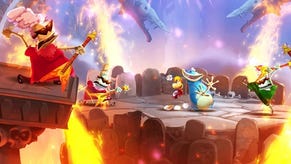

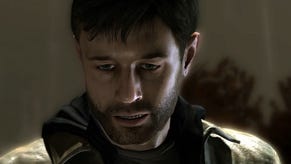

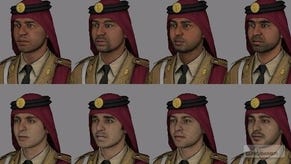
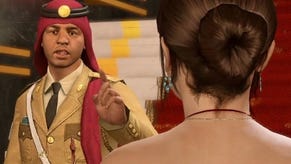

.png?width=291&height=164&fit=crop&quality=80&format=jpg&auto=webp)
